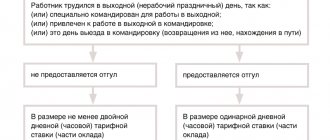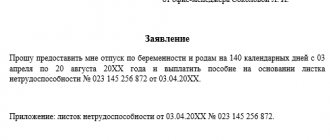Who should obtain consent for the period from March 30 to April 30
Putin declared the week from March 30 to April 3 non-working.
The decision was approved by Presidential Decree No. 206 of March 25, 2020 “On declaring non-working days in the Russian Federation.” On April 2, the non-working period was extended until May by presidential decree No. 239 of April 2, 2020. Due to the May holidays, the first working day will be 06.05. But many organizations that have the right not to work are not ready to stop processes and go on a month-long vacation. The law allows you not to do this. And so that the inspectors do not have any complaints, obtain written consent from each employee, and then issue an order for the organization. IMPORTANT!
The presidential decrees list organizations that will continue to function from March 30 to April 30. In this case, there is no need to receive written confirmation from employees of their willingness to work on a day off!
An exception is made for:
- continuously operating organizations;
- hospitals and pharmacies;
- organizations that provide the population with food and essential goods;
- organizations that carry out urgent work in emergency situations, in other cases that threaten the life or normal living conditions of the population;
- organizations that carry out emergency repairs and loading and unloading operations.
There will be no holidays for these organizations. The rest, if they want to work from March 30 to April 30, will have to obtain written consent.
IMPORTANT!
According to Presidential Decree No. 206 of March 25, 2020, the days from March 30 to April 3, that is, a full week, were declared non-working. During a six-day period, Saturday April 4th is a working day. They didn't give her a day off. If an employee works a six-day period on April 4, written consent is not required.
This is what a sample consent to work on a day off from March 30 to April 30 looks like:
| To the Director of the State Budgetary Institution www.gosuchetnik.ru Ivanov I.I. from the head of the economic department Olgina O.O. AGREEMENT I, Olga Olegovna Olgina, agree to go to work from 03/30/2020 to 04/30/2020 to resolve organizational issues in connection with preparation for the reporting period. It was brought to my attention by the head of the HR department, Alexandrova Alexandrova, that I have the right to refuse to go to work on a day off. I have no medical or other contraindications to working on weekends. I agree to compensation in the form of additional days off. Olgina /Olgina O.O./ 27.03.2020 |
Pay for work on days off
Employees are entitled to compensation for the use of personal time spent working overtime. They have the right to choose:
- or take an additional day off and receive payment for work on a day off in a single amount;
If you have access to K+, check whether you have correctly registered work on a day off if the employee took a day off. If you don’t have access, get free trial access to the system and go to the Ready Solution.
- or agree to double monetary compensation based on the current tariff rate or for piecework payment (Article 153 of the Labor Code of the Russian Federation).
For those employees who are entitled to a fixed monthly salary, payment for work on weekends and holidays is made based on the daily or hourly rate, if the monthly working time standard (according to the Labor Code of the Russian Federation) is not exceeded. If the monthly working time limits are exceeded, payment for additional work on holidays and weekends is calculated at double the rate.
If an employee has requested time off, he must write a corresponding application.
The rules for calculating additional compensation for weekends and holidays do not apply to those whose regular schedule includes the possibility of working on holidays and weekends: employees with irregular working hours or shift work.
All additional conditions can be specified in the internal regulations on remuneration, the procedure for filling which you will learn from the article “Regulations on remuneration of employees - sample 2022 - 2021” .
Why is the document prepared?
The initiative to work on holidays comes from both the employee and the employer. The Labor Code of the Russian Federation prohibits work on weekends, except for some cases of force majeure, which will be given below. But you can choose work instead of rest. To ensure that actions do not contradict the law and do not entail administrative punishment, it is important to correctly formalize consent to go out on a holiday.
Employer actions:
- Receive written confirmation from the employee that he is ready to go to the office after hours.
- Issue an order, familiarize the subordinate with it, and verify it with the signatures of the parties.
- If there is a trade union, obtain permission from it (Article 113 of the Labor Code of the Russian Federation).
Design rules
The law does not establish a unified consent form for working on a day off, since this document is quite simple and is developed independently by each employer. We should not forget that the form of consent to work on a day off is allowed only in writing. In addition to the usual details: name of the addressee (organization and boss), employee data (including position), name of the document, date and signature (a signature is required and handwritten), there are also specific ones. So, it is necessary to make it clear what the employee agrees to, and specifically indicate the day and reason for attracting the employee. In addition, it is advisable to indicate that the citizen has been notified and has the right to refuse.
When consent to work on holidays is not issued
Similar options are described in Article 113 of the Labor Code of the Russian Federation. If martial law is introduced, the consequences of an accident at the enterprise, damage from fires, floods and other disasters are urgently eliminated, the employee is ordered to come to the workplace, otherwise his failure to appear will be absenteeism.
Continuously operating enterprises have the right to call members of their team on weekends to carry out repairs.
On non-working days for others, representatives of creative professions usually work: musicians, artists, organizers of mass events and athletes. The rules for going on holidays must be specified in their employment contract or other document and compensated accordingly.
When is it still possible?
The list of exceptions when consent to work on holidays is not required is short:
- in order to prevent accidents, catastrophes, including industrial and natural disasters, to eliminate their consequences;
- in order to prevent accidents at work, destruction of enterprise property or its damage, prevention of damage and destruction of state and municipal property;
- to perform urgent tasks that are needed due to the introduction of a state of emergency or martial law, to prevent natural disasters and eliminate their consequences, and in other cases if there is a threat to life, the normal living conditions of the population.
Who is allowed to be called on a limited basis and who cannot be called at all
Some categories of citizens are allowed to be involved in work activities outside of working hours, but under special conditions:
- disabled people;
- citizens caring for disabled children;
- women with children under three years of age;
- single mothers (fathers) with children under five years of age.
Each employee should be made aware of the right to refuse to go to work. If your subordinate is willing to work after hours, get his confirmation in writing. Those exempt from work for medical reasons cannot be forced to work on days off. The Labor Code of the Russian Federation prohibits pregnant women and persons under 18 from working on holidays. Even if the employee agrees to work on a day off, he cannot be involved in work.
Working on a day off according to the Labor Code of the Russian Federation
Every employee has the right to rest, which is reflected in the provisions of the Constitution of the Russian Federation.
In Art. 113 of the Labor Code of the Russian Federation confirms the right of employees to rest on holidays and their days off. Involving them in additional work activities is possible if written consent to leave is obtained in advance. However, employees may refuse additional processing during non-working hours. ATTENTION! Due to the coronavirus pandemic, a new term “non-working days” was introduced in 2022. It appeared in the decrees of the President of the Russian Federation, according to which people were prohibited from leaving their homes, but at the same time employers were obliged to pay for these days. The Labor Code of the Russian Federation understands non-working days as weekends and non-working holidays, and, as a rule, they are used together, since practically the same rules are established for them. The fundamental difference between non-working days according to the decrees of the President and non-working holidays and weekends according to the Labor Code of the Russian Federation is that they cannot be classified as rest time.
Work during additional hours must be documented accordingly. Necessary:
- obtain the employee’s written consent to go to work during holidays or weekends;
- familiarize the employee with the conditions of severance, including the right to refuse work in free personal time;
- notify the trade union body (if there is one);
- issue an order to perform overtime work, indicating the reasons, duration and persons involved.
Sometimes obtaining the employee's consent to perform work duties on weekends is not required. These are possible subject to the following conditions in accordance with Art. 113 Labor Code of the Russian Federation:
- if it is necessary to prevent the occurrence of unforeseen circumstances that could lead to catastrophic consequences, including accidents or damage to the property of the enterprise;
- the need to perform the work arose due to an emergency situation, including caused by a natural disaster or martial law.
An exception is made for pregnant women. They cannot be involved in such work (Article 259 of the Labor Code of the Russian Federation). Other categories of employees (disabled people, women with young children under 3 years old) are involved in overtime work only with their consent. It is prohibited to use it on weekends and by minors.
Possible options for attracting people to work in their free time must be specified in the collective agreement and other internal local acts.
ConsultantPlus experts explained in detail whether it is possible to hire an employee to work on a weekend or a holiday. Get trial access to the system for free and go to the Ready Solution to find out the answer.
How to compose correctly
The document must contain the following information:
- addressee of the application: name of organization, position, full name. directors;
- position of the addressee, his full name
Next you indicate:
- that you have no objections and agree to leave during non-working hours (write the exit date);
- are aware of the option to stay at home;
- healthy and work is not prohibited by a doctor.
You can indicate what compensation you are claiming. Art. 153 of the Labor Code of the Russian Federation offers the employee a choice: remuneration in cash (at least twice the usual salary) and additional days off.
Who has the right to refuse
An employee has the opportunity to refuse to work. If the call is not related to insurmountable circumstances, the urgency of which determines the further activities of the company, the employer should not call the employee from the day off at all.
In any case, disabled people and women who have children under 3 years of age have the right to refuse. To call them, not only the employee’s consent to work on a day off is required, but also confirmation that his state of health allows him to remain without rest.
How to pay
There are two options for paying for an unscheduled working day:
- double payment;
- single pay and extra days off.
Which option is preferable is indicated in the employee’s consent to work on holidays or in a separate application:
Payment is calculated based on average daily or hourly earnings. If an additional working day is included in the monthly working time norm, then 1 rate is paid in addition to the salary, and if the norm is exceeded, 2 rates are paid.
The company has the right to pay more at its discretion. All additional payments can be taken into account in salary expenses - para. 13 letter of the Ministry of Finance dated 02.02.2006 No. 03-03-04/4/22.
Why is consent needed?
Many employers believe that oral communications to the other party are sufficient if holidays or weekends require an on-site appearance. Or they use telephone arrangements. This opinion is not true.
You cannot force people to work this way; current laws contain a direct ban on this topic.
The exception is situations where the future uninterrupted operation of the enterprise is highly dependent on the solution of current production issues. But this procedure also requires the exchange of written messages. The consent of the other party must also be obtained in writing.
A prerequisite for any company is the execution of an order, which the employee is introduced to under personal signature. If there is a trade union at the enterprise, then it is impossible to do without agreement with a representative of this association.
Failure to comply with these rules is associated with negative consequences for management. If an inspection is carried out and a violation is detected, the labor inspectorate has the right to bring the director to administrative responsibility and impose a fine. Both specific managers and the enterprise as a whole are punished.
How to obtain consent
Both in terms of content and in terms of execution of consent, the legislation does not impose any special requirements - it can be drawn up on a regular sheet of any convenient format or on the organization’s letterhead (if required by its internal rules). The consent may be written by hand (but only with a ballpoint pen of any dark color, not a pencil) or typed on a computer.
IMPORTANT! The document must be signed by the employee himself. Without a signature, consent is not consent.
The consent can be written in one copy, but it is better to make two – one, after approval from a representative of the organization, keep it with you, and give the second to the employer.






